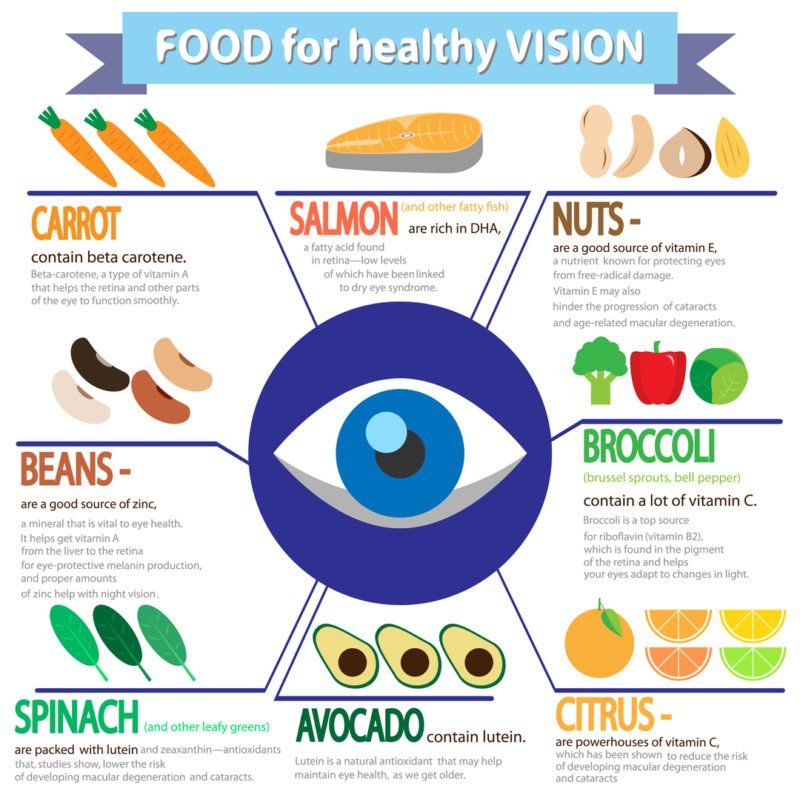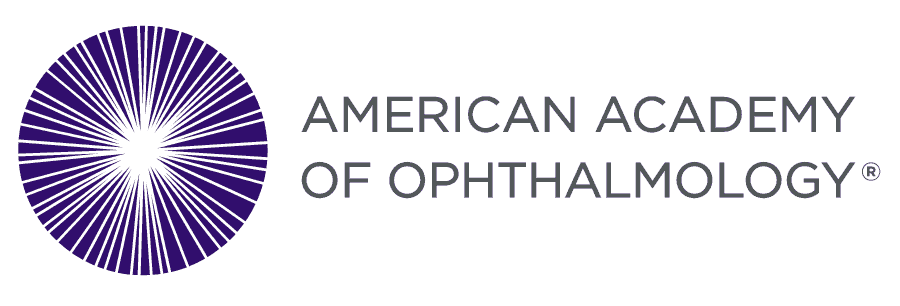Since you were little, your Mom told you to eat your carrots. “They’ll help you see better,” she said.
Is this true? Can you get Superman’s x-ray vision simply by eating enough carrots to make you feel like a character from Watership Down? Although not directly correlated to improved vision chart success, the overall answer is that you should listen to your Mother. The right foods do help protect the health of your eyes.
Unlike foods that can instantly give you more energy or help build muscle tone and the like, foods that benefit your eyes serve a protective function, keeping them healthier and helping them ward off vision problems. Nutrients such as omega-3 fatty acids; lutein; zinc; and vitamins A, C, and E have all been shown to be beneficial for your eyes. Where can you get these nutrients?
The carrot reference is born from beta-carotene, a type of vitamin A that helps the retina and other parts of the eye to function. Beta-carotene gives fruits and vegetables their orange hue, so you’ll find it in carrots, sweet potatoes, winter squash, apricots, and cantaloupe.
Your Mom didn’t tell you about lutein and zeaxanthin, but she would have had she known about these antioxidants. Lutein and zeaxanthin help the eyes to ward off macular degeneration and cataracts. Leafy green vegetables (cooked kale and spinach are the highest sources) and other green and yellow vegetables are good sources of these antioxidants.
If you’d rather go the non-vegetarian source for lutein and zeaxanthin, look no further than eggs. Egg yolks are a prime source of both antioxidants, along with the mineral zinc. In addition to lutein and zeaxanthin, the macula has high levels of zinc.
You don’t have to be a pirate to reap the benefits of citrus and berries. Famous in pirate lore for warding off scurvy, these fruits are great sources of vitamin C (also known as ascorbic acid). Vitamin C is a powerful antioxidant that helps the body form and maintain connective tissue, including collagen found in the cornea of the eye. It also reduces the risk of macular degeneration and the formation of cataracts. You’ll find vitamin C in berries, sweet red peppers, broccoli, and oranges.
And it wouldn’t be nutty to think a handful of almonds would be good for your eyes. Almonds are loaded with vitamin E, another ally in the fight against macular degeneration and cataracts. Vitamin E appears to neutralize oxidation in the eyes. Cataracts, for example, are formed by oxidation in the lens of the eye caused by the UV rays in sunlight. Almonds, sunflower seeds, cereal with wheat germ, hazelnuts, peanuts, and peanut butter are all good sources of vitamin E.
Finally, a fish tale for combating macular degeneration. Oily fish like tuna, mackerel, salmon, and trout are rich in omega-3 fatty acid. A diet heavy in omega-3 fatty acids has been shown to reduce age-related macular degeneration by 38 percent.







